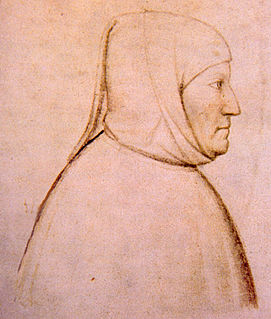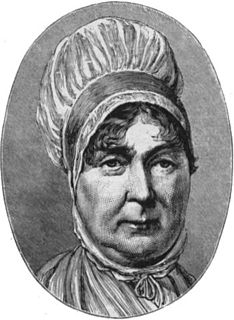A Quote by Mark Twain
But soft you, the fair Ophelia: Ope not thy ponderous and marble jaws, But get thee to a nunnery - go!
Related Quotes
My Lord, I have nothing to do in this World, but to seek and serve thee; I have nothing to do with a Heart and its affections, but to breathe after thee. I have nothing to do with my Tongue and Pen, but to speak to thee, and for thee, and to publish thy Glory and thy Will. What have I to do with all my Reputation, and Interest in my Friends, but to increase thy Church, and propagate thy holy Truth and Service? What have I to do with my remaining Time, even these last and languishing hours, but to look up unto thee, and wait for thy Grace, and thy Salvation?
In Thy fullness, my Lord,
Filled with thy grace,
For the purpose of union with Thee
And to satisfy and glorify Thy creation,
With thanks to Thee with all our hearts
And with all our love for Thee,
With all adoration for all Thy blessings
We accept thy gift as it has come to us.
The food is Thy blessing and in Thy service
We accept in all gratitude, my Lord.
O friend, my bosom said,
Through thee alone the sky is arched.
Through thee the rose is red;
All things through thee take nobler form,
And look beyond the earth,
The mill-round of our fate appears
A sun-path in thy worth.
Me too thy nobleness has taught
To master my despair;
The fountains of my hidden life
Are through thy friendship fair.
Demean thyself more warily in thy study than in the street. If thy public actions have a hundred witnesses, thy private have a thousand. The multitude looks but upon thy actions; thy conscience looks into them: the multitude may chance to excuse thee, if not acquit thee; thy conscience will accuse thee, if not condemn thee.
Who hath not seen thee oft amid thy store? Sometimes whoever seeks abroad may find Thee sitting careless on a granary floor, Thy hair soft-lifted by the winnowing wind; Or on a half-reap'd furrow sound asleep, Drows'd with the fume of poppies, while thy hook Spares the next swath and all its twined flowers.
Thy husband is thy lord, thy life, thy keeper,
Thy head, thy sovereign; one that cares for thee,
And for thy maintenance commits his body
To painful labour both by sea and land,
To watch the night in storms, the day in cold,
Whilst thou liest warm at home, secure and safe;
And craves no other tribute at thy hands
But love, fair looks and true obedience;
Too little payment for so great a debt.
If thou art indeed my father, then hast thou stained thy sword in the life-blood of thy son. And thous didst it of thine obstinacy. For I sought to turn thee unto love, and I implored of thee thy name, for I thought to behold in thee the tokens recounted of my mother. But I appealed unto thy heart in vain, and now is the time gone for meeting.


































